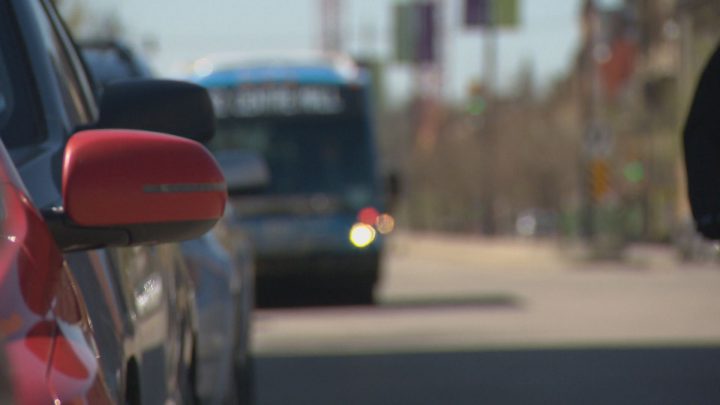An online survey commissioned by a mayoral front-runner says 43-per cent of Londoners aren’t on board with the city’s bus rapid transit project.

Ed Holder said he wanted to ask unbiased questions, and hired Toronto-based company Campaign Research to gather data from 500 people living in the city.
The survey found 21 per cent of people didn’t know enough about the project, 19 per cent didn’t have a strong opinion about it, and 16 per cent voiced support.
“I think people look at the $500-million expense, and wonder if that’s the best use of funds,” Holder told 980 CFPL’s The Craig Needles Show on Friday.
The former Conservative MP for London-West said he didn’t support bus rapid transit when he announced his run for mayor in July. London has secured $370 million for the project from provincial and federal levels of government, which Holder has said he wants to spend on other transit projects.
“Ask the federal government, and they will tell you that their funds for transportation infrastructure are not tied to BRT,” said Holder. “The new provincial government has said that they will not tie any transit infrastructure funding to BRT.”

Get daily National news
While Holder is adamant that permanently putting the brakes on the transit plan won’t jeopardize the funding, rival mayoral candidate and current Ward 13 Coun. Tanya Park stated otherwise.
Citing “countless meetings” with ministers at both levels of government, Park told 980 CFPL the money isn’t so easily transferable.
“It doesn’t work like that — that would be fiscally irresponsible of any government to do that.”
Park also said there won’t be much opportunity for an anti-BRT mayor to ax the project, which is currently in the midst of an environmental assessment period.
“Look at current council, how many incumbents will ultimately be re-elected? I would say it would be really difficult to swing eight votes to kill this project, recognizing how hard council has worked on it.”
London expected to foot $130 million of the project’s price tag. Holder said it was recently discovered the figure had grown, and Park elaborated on a recent provincial government change to the Development Charges Act which means London can use fewer development charge dollars on new buses and other elements needed for the project.
“That being said, the city itself has reserved funds for situations like this,” said Park.
While the survey discovered that bus rapid transit wasn’t a favourable idea for many Londoners, it also showed 54 per cent of respondents did think an improved bus system to be important, or very important.
Holder wants to address transit issues by improving a phone app that says when buses will arrive, adding service to industrial areas, supporting the Adelaide Street underpass, and getting synchronized traffic lights.
“We have to make investments in our busing,” he said.
But many of those ideas, according to Park, are either already in the works or a part of the bus rapid transit plan.
Synchronized traffic lights are a component of the BRT plan, she said, while adding service to industrial areas is something the London Transit Commission is already working on.
“The Adelaide Street underpass? It was this council that moved it forward, it was this council that budgeted for it, and it was this council that got it approved.”











Comments